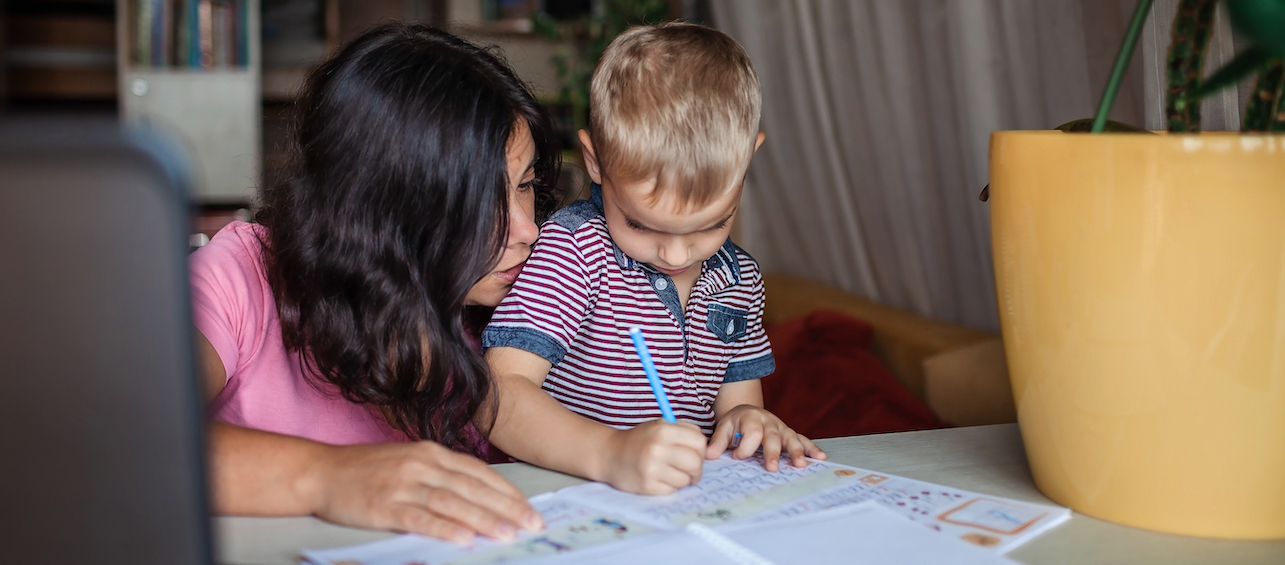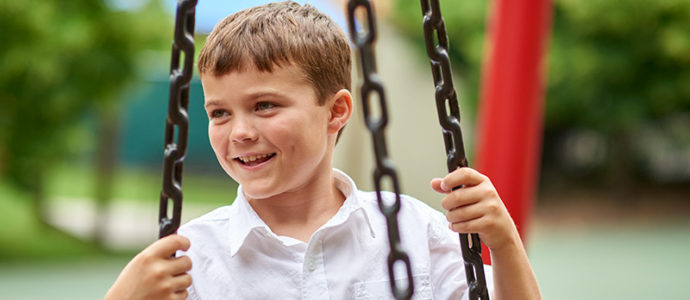All you need is a little patience and understanding, they said. Just read this book, they said. Try watching these videos, they encouraged.
While I have appreciated the advice of everyone around me, none of it quite fit our family’s situation.
That’s because my son was diagnosed with ADHD around age 4 and nothing we did seemed to help him. I read books. Watched videos. Joined online support groups.
It wasn’t until I attended the Understanding and Managing ADHD in Preschoolers parent course at Cincinnati Children’s that I felt like we were equipped to handle the behaviors our son threw at us.
As it turns out, “they” were on the right track. Patience and understanding are important to managing a child with ADHD. The problem is that those aren’t my innate parenting qualities and they needed to be learned.
Learning to Parent with ADHD
Fortunately, Dr. Froehlich, my son’s behavioral medicine doctor, suggested we take this course. I felt like we were at constant war in our house and something needed to give. We first needed to understand ADHD in order to manage and help our son.
If you’ve found yourself in a similar position, I’d like to share how this group helped us, in case it might also help your family. Here are the five most useful things I learned from the Understanding and Managing ADHD in Preschoolers parent course:
1. Speak directly to your child and give effective commands.
Okay, this sounds so simple. Of course I should speak directly to my child. But was I really? As it turns out, yelling down the steps to my son to tell him to go get his shoes on and brush his teeth wasn’t an effective command. Kids with ADHD are often lost in their own thoughts. If they’re not spoken to directly, they’re not listening. I learned that I have to get right in front of my son’s face, look him directly in the eye, and tell him to do one thing – not three, not even two – to be effective.
2. Give LOTS of praise and make it specific.
As parents, we know how valuable praise is for kids. I mean, even we need it once in a while. But because kids with ADHD are being corrected all day long, it may feel like they receive more negative than positive feedback. This can really wear on their self-esteem. I learned that not only do I need to praise my son more often, but I need to make it really specific to make it effective. At the time, I had to look hard for things to praise. With time, it got easier. Great job putting your lunchbox away. Thank you for using your inside voice. At first he resisted this, because it seemed so out of place to him, but eventually he began appreciating it. And then he started thriving off of it.
3. Spend quality one-on-one time together.
Sometimes relationships between parents and kids with ADHD can be strained. It’s important to spend quality one-on-one time together to help repair it. This was a hard reality pill for me to swallow. We were at constant odds with each other and something needed to give. The course suggested that we spend about 10 minutes of quality time together each day. And during this time, I was not to do any sort of correcting. We were to do an activity of my son’s choice, and I was to listen and have fun.
4. Set up a reward system.
Before I took this course, and perhaps even before I had kids, I thought my kids should listen because I told them so, because that’s what they’re supposed to do. I don’t think I could say those words with a straight face now. I now have three kids with ADHD and as I learned in this course, kids with ADHD are only motivated by things that they want to do. It has to do with their lack of dopamine. So in order to get them to do things that they don’t want to do, we have to provide incentives. We picked 3-5 things that my son struggles with the most at home, and set up a system for him to earn rewards. For instance, if he follows my directions with only one reminder, he earns two tokens. Once he saves up enough tokens, he can cash them in for a reward, such as screen time. The key, I learned, is to make sure that the token is given immediately; that way I’m reinforcing the good behavior.
5. Get rid of the distractions.
This is an obvious tip for parents of kids with ADHD, but I mention it because it’s important to reiterate during these times of virtual learning. My son’s school is still doing distance learning. It’s my responsibility to help fulfill the items in his IEP. He needs a quiet place to take his calls. He needs lots of specific praise, incentives, and reminders to get through it. We take lots of breaks. His work is broken out into chunks. And when he’s finished with all of his work, he gets to do an activity of his choice as an incentive.
Yes, patience and understanding are important for managing kids with ADHD. But for me, the patience didn’t come until I had a better understanding of how his brain operates. We’re certainly not perfect, but are in a better place now than before taking this course.
Current course offerings cover strategies for parents of children preschool-aged up to 12 years. Find details on these parenting support groups and how to enroll: Group Programs for Parents of Children with ADHD






Great article! I will be forwarding this on to several parents I know who are struggling with the same issues you mentioned.